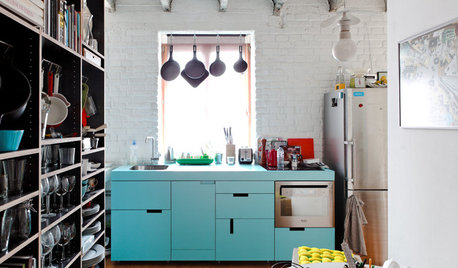WHO called glyphosate a "probable carcinogen"
canadianplant
9 years ago
Featured Answer
Sort by:Oldest
Comments (29)
drew51 SE MI Z5b/6a
9 years agolast modified: 9 years agoalan haigh
9 years agolast modified: 9 years agoRelated Discussions
Reseeding Plan - glyphosate or not?
Comments (56)Some are overachievers and worse, morning people. I had germination on day 5 in absolutely terrible weather conditions. Some of your seed will be slackers and sit around playing their X-Box, finally getting around to sprouting sometime close to day 30. Cultivars vary in their sprout date as well. If memory servers, and it might not, the Compact-America grasses sprout a little faster while Compact-Midnight group grasses are notoriously slow. It's a great indication that you're providing good sprouting conditions, though, so you know you're doing everything right....See MoreCancerous Pesticides
Comments (7)FWIW, Diazinon was banned in the US over a decade ago. Organophosphates are some of the most toxic of pesticides because they are neurotoxins and can alter brain and nerve function at very low dosages, especially with fetuses, infants and small children. They are often implicated in the increased levels of ADHD as well as Alzheimers. Malathion is still on the market and is used most frequently for head lice and scabies, flea control and mosquito control. Personally, if I had small kids and they developed a lice problem, malathion would be the LAST product I'd go to considering its impact. While glyphosate is technically an organophosphate as it is a compound formed of phosphate esters, it lacks any impact on brain or nerve function and does not inhibit cholinesterase activity. It is NOT a neurotoxin! OP herbicides are structurally different from OP insecticides - they are phosphanoglycines rather than cholinesterase inhibitors . One would think that a science-based organization like the World Health Organization would clarify such an important distinction but considering their free extrapolation of the testing results from 'limited' to 'probable', perhaps not :-( They are after all a political body as well. And we all know what kind of BS politics produces!! Just to keep things in perspective, some of the most important biochemicals are organophosphates, including DNA and RNA....See MoreWhy we should avoid herbicides (Roundup and glyphosate in general)
Comments (33)While that may (or may not) help, studies are showing glyphosate showing up in some pretty strange places. One study reported it is found in Human mother breast milk in Germany, a country which banned its use. Another linked over exposure to it by farmers in Central and South America to "kidney necrosis", death of the farmers' kidneys. Both glyphosate and 2-4-D are endocrine disruptors. They are finding increasing evidence they not only disrupt plants, but also insects, animals and Humans, as well as lead to or directly cause a host of other illnesses and ailments. Buying non GMO and/or "organic" may help reduce our exposure,but the chemicals find their way into many other food products we are never warned about nor notified of. Thank you, Karen. Yes ma'am, the DARK Act is but one of so many "sell outs" of the citizenry. We're currently hearing a lot of push over Dodd-Frank, the banking regulations act. It contains some safeguards for the industry and the citizenry, but it also contains a nasty little provision called "bank bail-ins". If you're unfamiliar with them, you honestly need to research them. Unfortuantely, there isn't a whale of a lot any of us are able to do to protect ourselves. Those in power wish to eliminate the safeguards/regulations, which will surely lead to another crash. That will then trigger bail-ins. At that point, we are all screwed. The banks get the money you have on deposit. The derivative losers are first in line to be made whole using the monies on deposit in the banks and no one is forgiven their debts, taxes, etc....See MoreGreed, Lies and Glyphosate: The Portier Papers
Comments (5)I know this is an old topic but there's some mudslinging here, or rather lack of mud since your million dollar remote control Deere tractor just disconnected itself for an update and the service guy has to wait for your bank loan to go through before he can pull out the snow plow. We're talking about human lives and health here. Cancer, GI and immune issues, asthma, obesity, and so on. Pointing fingers is kind of neither here nor there. Absence of evidence is not evidence of absence, well, that can be said on either side. Like, literally forcing everyone to eat nothing but the same organic MREs would not be freedom, but I don't really think that forcing people to grow all GMO feed is freedom either....See Morealan haigh
9 years agodrew51 SE MI Z5b/6a
9 years agolast modified: 9 years agoalan haigh
9 years agocanadianplant
9 years agodrew51 SE MI Z5b/6a
9 years agolast modified: 9 years agowisconsitom
9 years agoalan haigh
9 years agolast modified: 9 years agocanadianplant
9 years agowisconsitom
9 years agowisconsitom
9 years agolast modified: 9 years agocanadianplant
9 years agowisconsitom
9 years agolast modified: 9 years agodrew51 SE MI Z5b/6a
9 years agoalan haigh
9 years agoalan haigh
9 years agocanadianplant
9 years agowisconsitom
9 years agoalan haigh
9 years agolast modified: 9 years agowisconsitom
9 years agoalan haigh
9 years agolast modified: 9 years agowisconsitom
9 years agoalan haigh
9 years agolast modified: 9 years agocanadianplant
9 years agoalan haigh
9 years agolast modified: 9 years agodrew51 SE MI Z5b/6a
9 years agoalan haigh
9 years ago
Related Stories

HEALTHY HOMEDetox Your Kitchen for the Healthiest Cooking
Maybe you buy organic or even grow your own. But if your kitchen is toxic, you're only halfway to healthy
Full Story
KITCHEN OF THE WEEKKitchen of the Week: Fans of Traditional Style Go For a ‘Mad Men’ Look
The TV show inspires a couple to turn their back on the style they knew and embrace a more fun and funkier vibe in their kitchen
Full Story
GARDENING AND LANDSCAPINGBid Bad Garden Bugs Goodbye and Usher In the Good
Give ants their marching orders and send mosquitoes moseying, while creating a garden that draws pollinators and helpful eaters
Full Story
EDIBLE GARDENSA Formerly Weedy Lot Now Brims With Edibles and Honeybees
Photographers transform their barren backyard into an oasis filled with fruit, vegetables, honey, eggs and more
Full Story
HEALTHY HOMEWhat's the Deal With Radon?
Get the facts on testing for this cancer-causing gas — and how to make your home safe if it shows up
Full Story
MATERIALSInsulation Basics: What to Know About Spray Foam
Learn what exactly spray foam is, the pros and cons of using it and why you shouldn’t mess around with installation
Full Story
DECORATING GUIDESBulletproof Decorating: Upholstery That Stands Up to Anything
Kids and pets are no match for fabrics as durable as these, which meet higher style standards than ever
Full Story
GARDENING GUIDESMake Sure You Read This Before Buying New Plants
Follow these 10 plant-selection tips to avoid buyer’s remorse
Full Story
FARM YOUR YARDHow to Build a Raised Bed for Your Veggies and Plants
Whether you’re farming your parking strip or beautifying your backyard, a planting box you make yourself can come in mighty handy
Full Story
GARDENING GUIDESHow to Get Your Prairie On
Have a field day with your landscape, even if you've got just a few modern containers on a paved path
Full Story



Bill Fleming